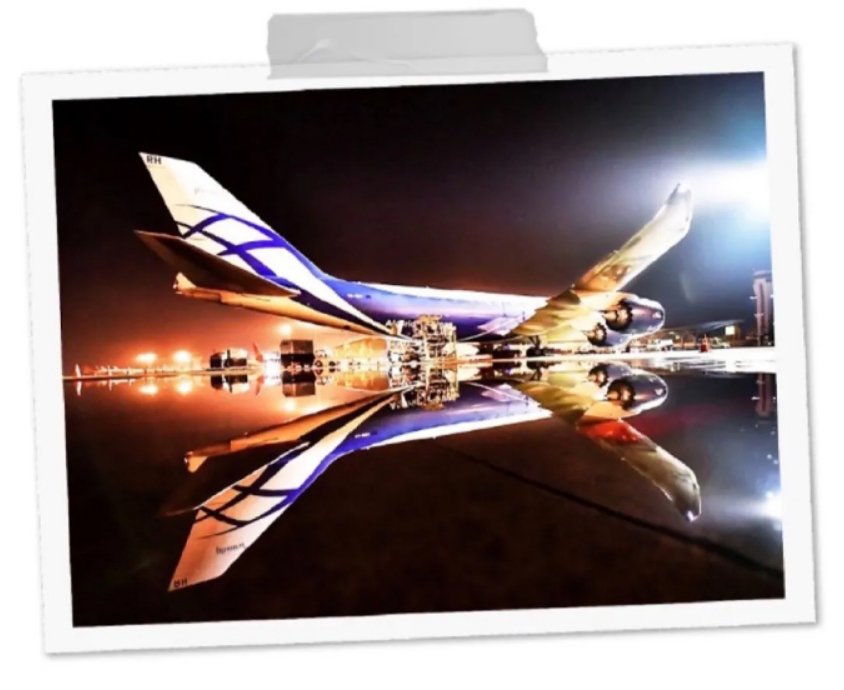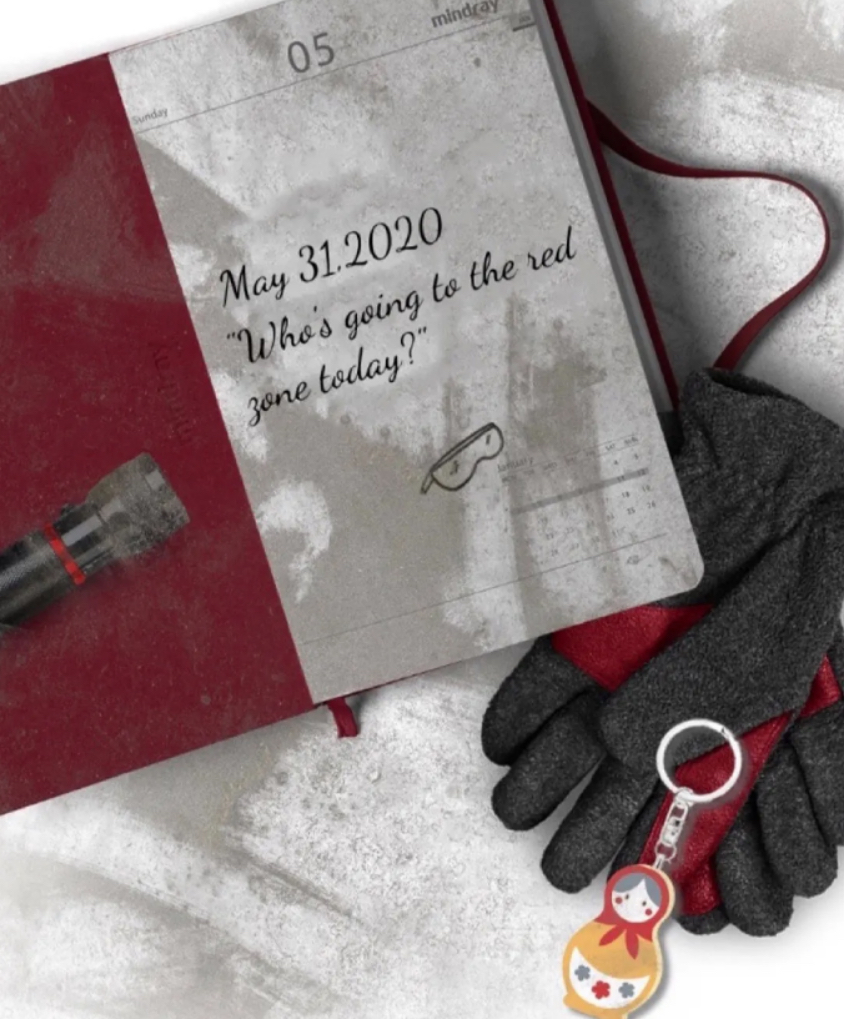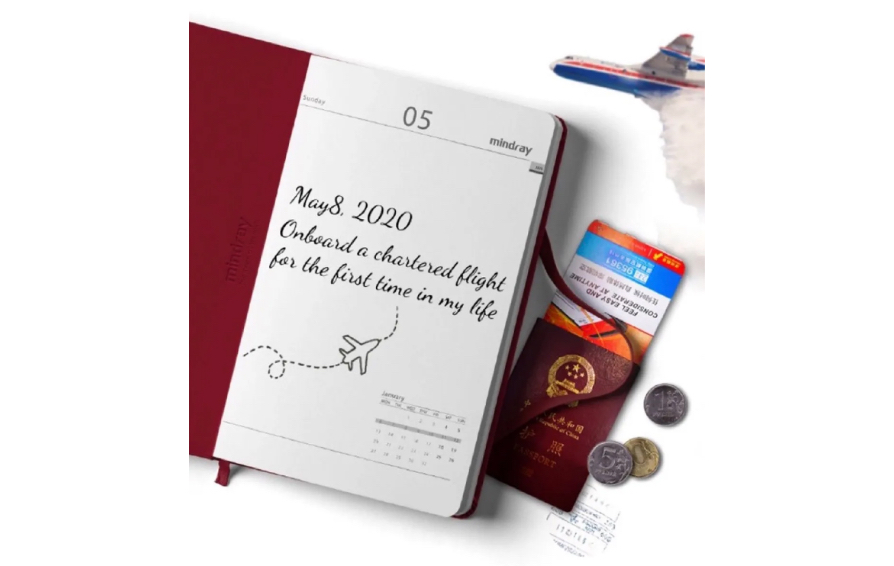Editor's note:
From May 8th to June 26th, 2020, 9 employees of Mindray's headquarters Service Engineers team visited Russia in order to work with the local team to support frontline healthcare workers to fight the coronavirus epidemic. More than two months later, when I opened the work diaries of them again, the images of those whom I collaborated with and things we experienced together immediately came to life before my eyes.

"A good start is half the battle", I muttered silently to myself the moment the plane took off.
When I first got the task of supporting the situation in Russia, everyone felt that it was an impossible task. Due to the severity of the epidemic at that time, flight routes were heavily controlled , making it impossible for us to buy air tickets through conventionally. Fortunately, it was with the help of the colleagues from the Russian office and our careful planning and organization, coupled with the strong support of the two governments, that we managed to obtain special official-business visas in the shortest time.The aviation sector also helped us, whisking our party to a destination more than 4,000 kilometers away.

I did not expect my first trip taking a chartered flight to be like this. Last night my wife asked me when I could return home. I couldn't answer. She didn't say much, but she prepared an elaborate breakfast this morning. "I guess you won't get the chance to eat many good meals abroad. So, eat more today before leaving!" I felt a little bit reluctant to leave, and I didn't know how to thank my family for their silent support. Working in these really difficult times can be distressing. We just have to take it one day at a time. Needless to say, we're all looking forward to the day of victory over the epidemic.


But we still have our own favorite working hours. Noon is the best time of the day, because working at this time can reduce the impact on the operations of the hospital and also reduce our risk of exposure to infection. Therefore, we developed the habit of skipping lunch and we installed and debugged equipment using every available second.Today is Sunday, which is the best working day for us, because the hospital does not conduct tests and we can work without any interference.

Today I heard this familiar conversation again: "Who is going to the red zone today?" "It's still the two of us." In order to protect the workers, every time we are dispatched to tasks in the red zone (Note: the red zone refers to the intensive care isolation ward of the anti-epidemic hospital), the clinical team lead and the installation team leader always go there by themselves.They had formed a tacit understanding among themselves, and there was no room for discussion with us.

By the way, this week I developed a new skill - "Breaking windows and cutting doors." The hospital we supported a few days ago was in an old building dated back to the former Soviet Union time, with narrow entrances and exits, and the equipment could not be taken inside at all. There was no other way but to widen the doors and windows, enabling the devices to be smoothly transported to the hospital.

The first sentence in Russian I learned was from a hospital director.
During the tasks I did today, the director greeted us at the entrance of the hospital, before showing us the dressing room, and then leading us to the red zone - the farthest he could go. After finishing the task, the director and his colleagues surrounded us and spoke excitedly to us. I didn't understand a word. A colleague translated it in simple English: "The Chinese are the best: we thank you!" After he stopped talking, the director solemnly handed us two hand-painted badges. "Cпacибo," he said repeatedly. Only then did l understand the meaning of this sentence and was deeply touched. I quickly took the badge with both hands and kept saying "Thank you" in response to his gratitude.

Although there was a language and cultural barrier, I could still sense the unity of different ethnic groups in fight against the disease. The Russian colleagues worked overtime with us, from planning before the trip to supporting the hospital. The medical staff of Russia's frontline hospitals are doing their best to support our work in order to save more lives. When I returnto China, I will share this badge to my family and keep it as a memento.


The return ticket for home was as difficult to find as the tickets to come in. After many twists and turns, we finally set off for home on the 26th. The flight attendants wore the top-level protective equipment and repeatedly checked the body temperature of the passengers. We are now in quarantine in Lanzhou and can return home to Shenzhen in two weeks.

When the steaming Lanzhou noodles were served on the table, I realized I hadn't had a decent Chinese meal in quite a while. It was the Dragon Boat Festival two days ago. Because we couldn't return to China before the start of the festival, our supervisor deliberately sought out a Chinese restaurant and ordered Zongzi for everyone. Although the conditions were humble, on the eve of the trip all colleagues spent the holiday like a family, with a lingering sense of warmth.

It's weird. When I was in Russia, I thought about my family every day. Now that I have returned to China, I begin to miss my colleagues and friends who worked together with me back in Russia. I heard the song "Moscow Nights" when l was young, and after returning from Russia, I even casually hummed it to myself: "You, also, don't forget, these summer nights near Moscow." Over all my years of work, Russia has become like a second home to me. Maybe just like this time, if there is a local need our services again, I will still be duty-bound to go and support them. What's more unforgettable are my teammates. Faced with unknown risks, it was still worthwhile to share the joys and sorrows with my brothers there.

Notes:
Mindray set up its foothold in Russia 13 years ago, with the first Russian subsidiary established in Moscow in 2007. The high-quality products, flexible solution, responsive attitudes, and the increasing insights into the market and experiences contribute to Mindray’s increasingly stronger presence in the Russian market. In 2012, another office was established in Siberia due to the expansion of the business. After years of dedication, Mindray has now built up a strong and professional team, of which nearly 90% are local Russian employees. Hard work has paid off. We are proud to see that Mindray is now taking the leading position in Russia’s medical devices import market, with its major products ranked top 3.
During the COVID-19 pandemic, Mindray Russia worked with Russian medical staff to spare no effort to save lives. We provided medical devices and solutions to Russian hospitals promptly and held webinars to unite international medical experts to guide healthcare professionals to provide better treatment while reducing the risk of infection. The mission of saving lives is more important than ever, and we are doing our best to make healthcare within reach.
